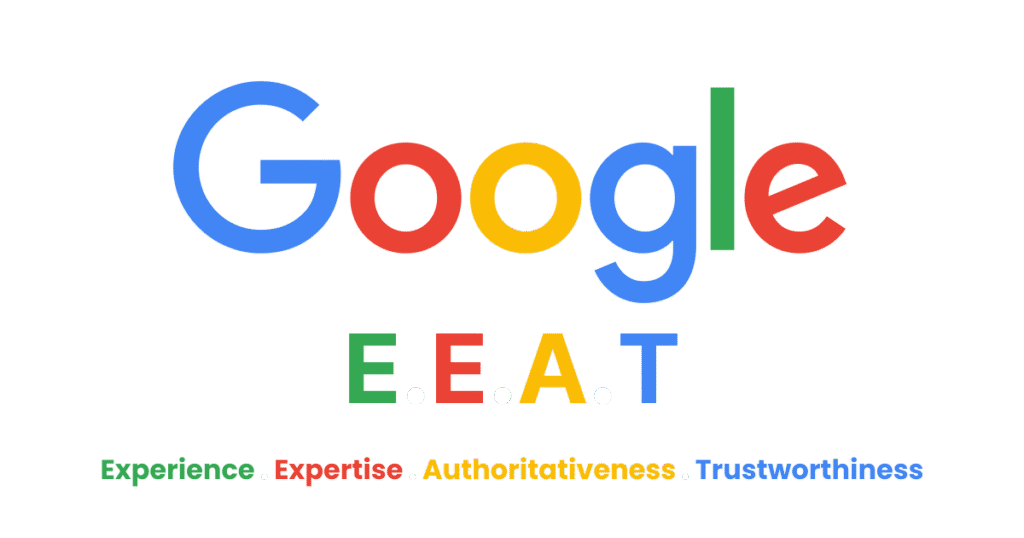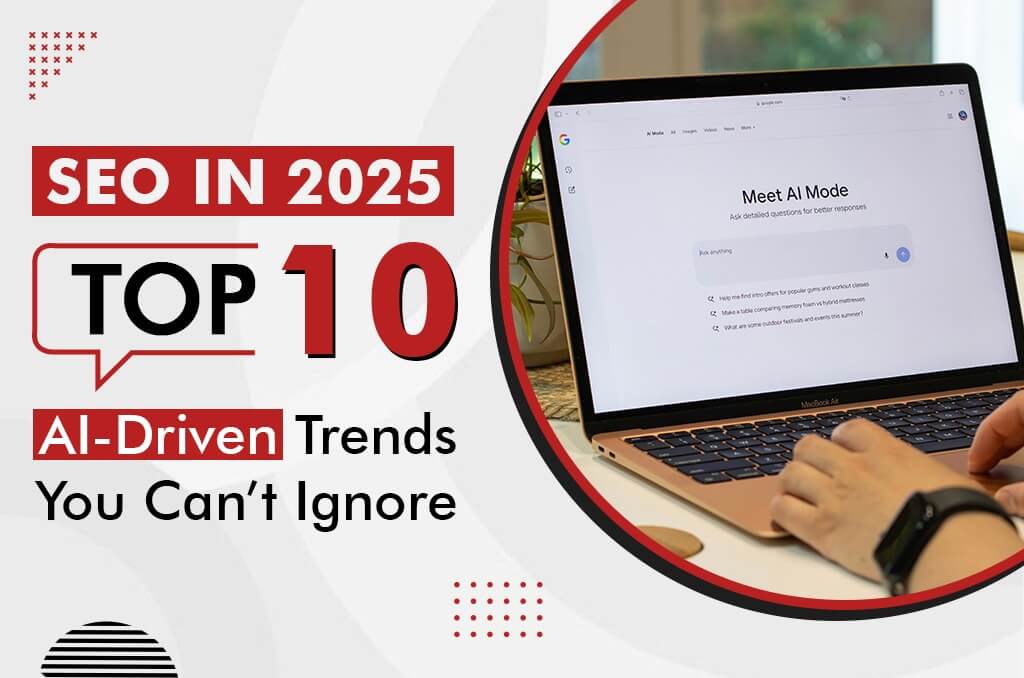SEO in 2025: Top 10 AI-Driven Trends You Can’t Ignore
Search Engine Optimization (SEO) has always been a dynamic field—but in 2025, the pace of change is faster than ever, thanks to the growing impact of Artificial Intelligence (AI) on how search engines work.
With Google’s AI-powered search features, such as AI Overviews and conversational queries powered by its large language models, traditional SEO is no longer enough. To stay relevant, businesses, content creators, and digital marketers must understand how AI is reshaping search—and adapt accordingly.
In this blog, we explore the top 10 AI-driven SEO trends in 2025 that you simply can’t afford to ignore.
1. Smarter Search Intent Recognition

AI now understands search intent better than ever before. Instead of focusing solely on keywords, Google and other search engines use machine learning to interpret what users really want—whether they’re looking to buy, learn, compare, or solve a problem.
What this means for you:
You must optimize content based on user intent, not just exact-match keywords. Create helpful, context-rich content that fully answers the user’s query.
2. Rise of Google AI Overviews (AI Mode)

Google’s AI Overviews (formerly known as SGE or Search Generative Experience) are now live for millions of users. These summaries appear above traditional search results and are powered by advanced AI models.
Why it matters:
Getting your content featured in these summaries can give you top-of-the-page visibility, even if your site doesn’t hold the first organic position.
Action step:
Focus on clear, structured answers, use FAQs, and cover topics in-depth to increase your chances of being cited by AI summaries.
3. E-E-A-T Is More Important Than Ever

Google’s quality guidelines emphasize Experience, Expertise, Authoritativeness, and Trustworthiness (E-E-A-T). AI algorithms use these signals to determine which content is reliable enough to show to users.
How to adapt:
Build author bios, cite credible sources, include real-world examples, and maintain an active and trustworthy web presence.
4. Conversational Content Will Rank Better

As users begin to search more naturally and conversationally—often through voice or AI chat features—Google is adapting by preferring content that sounds human, not robotic.
What to do:
Write in a natural, conversational tone. Include questions and answers in your content and structure it to feel like a helpful conversation.
5. Long-Form and Topic Cluster Content
AI favors content that shows deep topical authority. Rather than writing several unrelated short blogs, Google rewards websites that offer comprehensive, interconnected content on specific themes.
Tip:
Create pillar pages with supporting cluster articles. Internally link between them to strengthen topical depth.
6. AI-Powered Content Tools (with Human Touch)
More marketers are using tools like ChatGPT, Gemini, and other AI writing assistants to draft content. But Google still favors human-edited, high-quality content.
Advice:
Use AI to brainstorm or draft, but always edit for clarity, accuracy, and tone. Make sure your content still sounds uniquely you.
7. Visual and Video SEO Optimization
Google AI is getting better at understanding images and videos, not just text. Visual search is growing, and YouTube remains a top traffic source.
What to implement:
Use alt text, optimized file names, video transcriptions, and relevant metadata. Create helpful videos that complement your written content.
8. Real-Time Search Updates and Freshness Signals
AI enables search engines to process new content faster. Google can now surface fresh blog posts, news, or data within minutes of publication.
Strategy:
Regularly update your old content with fresh statistics and improve structure to stay current. Consistent posting also signals trustworthiness.
9. First-Hand Experience Matters
Google’s emphasis on first-hand experience in reviews and guides is growing. AI can now evaluate whether content seems original or copied, based on context and phrasing.
Best practice:
Include personal insights, case studies, or real-world data. Avoid generic, duplicated content.
10. Zero-Click Searches and Brand Visibility
AI-powered search often provides direct answers—meaning users might not even need to click a link. This makes brand awareness and visibility within AI results more valuable than ever.
How to stand out:
Build a recognizable brand presence. Optimize for featured snippets, knowledge panels, and schema markup to stay visible—even without a click.
Final Thoughts
The world of SEO in 2025 is being transformed by AI—but this doesn’t mean SEO is dead. In fact, it’s evolving into something smarter, more intuitive, and more human-centric.
To succeed in the AI era of search, focus on:
- Creating truly helpful, well-structured content
- Demonstrating real expertise and trust
- Staying updated with changing search behaviors
- Blending AI tools with your own voice and creativity
The future of SEO isn’t about chasing algorithms—it’s about understanding the user better than ever and providing real value in every piece of content you create.
Want to Future-Proof Your SEO Strategy?
If you’re looking to optimize your website for AI-powered search in 2025 and beyond, now is the time to rethink your content strategy.
Let us help you stay ahead in the game with human-first, AI-smart SEO solutions that actually rank.
Feel free to get in touch today!
Frequently Asked Questions (FAQs)
1. What is AI Mode in SEO?
AI Mode refers to Google’s integration of generative AI in search results, where answers are generated directly from multiple sources using large language models.
2. Will AI replace traditional SEO?
No, but it’s changing how SEO works. The focus is shifting from just keywords to intent, quality, and structure.
3. How do I get featured in Google’s AI Overviews?
Create clear, well-structured, and trustworthy content. Use headings, FAQs, and answer queries directly.
4. Should I use AI tools to create content?
Yes, but with human editing. AI can help speed up the process, but quality, accuracy, and originality still matter most.
5. Is E-E-A-T really important for ranking?
Yes. Google uses these principles to evaluate content quality and reliability—especially in AI-generated summaries.
